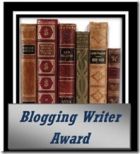5 Motivations For Your Character to Cross the Road
We all know our characters actions need to be guided by some sort of motivation. A character that simply reacts gets frustrating, and characters that have no logical consistency are usually unbelievable. So here’s the question for your character. Why would they cross a road?
My 5 suggestions:
1. Greed – They realised that by crossing the road there was something in it for them. Either something waiting for them or something to be gained. Either way, greed is a powerful motivator and most characters would cross a road for it (some would cross deserts, mountains, or outer space for it).
2. Love – Isn’t that sweet? Their true love is on the other side or they will prove their love by crossing. Doesn’t matter, either way, love is a powerful motivator.
3. Loss – Someone who has lost their way or lost a love one may cross the road just wondering whether the other side offers them anything to take away the pain. Or they may have made a promise to someone who is now gone and crossing the road will help them keep it.
4. Curiosity – Not such a good motivator because usually it is used when there is no good reason for characters to act in a certain way and so they ‘just want to see’ something. Still, if you’ve established your character as someone who likes to stick their nose into other people’s business you can probably make curiosity work.
5. The next logical step – If your character is on route somewhere then crossing the road might simply be the next logical step on their journey.
The point being here that characters need a reason to do things and as long as you, the writer, are clear about why they are doing something and it makes sense to the audience, everyone will end up happy. We usually don’t wonder why our characters cross roads but the same could be said of opening a door, running up a flight of stairs, taking that trip somewhere, or any of the other decisions our characters have to make.
What is your answer? Why would your character cross the road?
Plot – Why So Complicated?
I’m on holidays at the moment but I’m reposting some of the more popular posts from my old blog, Darkened Jade. If you leave a comment I’ll be sure to catch up with you when I get back.
Everyone will tell you a story has to have a problem. Or a complication. Or a conflict. It all amounts to the same thing. There has to be a central issue that is in some way connected to the central characters. Why? Because otherwise, what is your story about.
If someone handed me a book and said ‘read it’, my first question would be ‘what is it about?’. This isn’t me wanting the blurb read to me or someone’s review. This is me just wanting to know what is the point of the book. Boil all the fancy words down, what is the reason for the story. Read the two answers below and decide which you would read.
1. Luke and Lane are getting married.
2. Luke and Lane are getting married but Lane’s mother doesn’t approve.
The first tells me what events to expect but it doesn’t sound particularly interesting. Unless it is a biography about two people I had heard of and I was wanting to know about their wedding, I’m unlikely to read it. The second tells me there is a problem. They want to get married, but… And that but is enough to keep me interested. How does Lane’s mother react? Does she try to interfere? Stop the wedding? Why doesn’t she approve? So many questions that I instantly want answered and now I have to read the book to find out.
You have to have a complication.
And before you run off and try to think of something so intensely convoluted that even Nostradamus would have asked for directions the central complication doesn’t need to be too complex. The important thing is that there is a point to reading and the reader can expect some kind of satisfactory explanation. It is not really important to try to confuse them. If you want to make your story more complex, you can layer other complications and side plots in later, but the basic storyline should be relatively clear.
What kind of problem could there be?
Most people I’ve spoken to and most of the advice I’ve read points to four basic types of conflict that appear in books.
1. Man against society – The protagonist (for whatever reason) opposes the world and society in which he lives. The story then usually revolves around the protagonist trying to change things in some way.
2. Man against man – Two characters for whatever reason have opposing view points or goals and the clash of personalities creates the conflict. Frequently one will be villianised while the other will be set up as a hero.
3. Man against himself – Looking at internal conflict of someone trying to change who they are within.
4. Man against nature – Protagonist trying to defeat some kind of monster, natural disaster, climb a mountain, save the world, etc, etc.
While these are the basic types of conflict there are many books that use variations or combinations of these, plus if you include multiple sub-plots it will enable you to explore more than one of these within a single story.
And here’s the link if you haven’t yet checked out the blurb or excerpt for Death’s Daughter.



